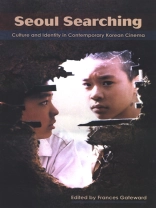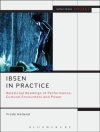Korean cinema as industry, art form, and cultural product.
Seoul Searching is a collection of fourteen provocative essays about contemporary South Korean cinema, the most productive and dynamic cinema in Asia. Examining the three dominant genres that have led Korean film to international acclaim-melodramas, big-budget action blockbusters, and youth films-the contributors look at Korean cinema as industry, art form, and cultural product, and engage cinema’s role in the formation of Korean identities.
Committed to approaching Korean cinema within its cultural contexts, the contributors analyze feature-length films and documentaries as well as industry structures and governmental policies in relation to transnational reception, marketing, modes of production, aesthetics, and other forms of popular culture. An interdisciplinary text, Seoul Searching provides an original contribution to film studies and expands the developing area of Korean studies.
Jadual kandungan
List of Illustrations
Acknowledgments
Introduction
Frances Gateward
Part 1: Industry Trends and Popular Genres
1. Korean Cinema after Liberation: Production, Industry, and Regulatory Trends
Seung Hyun Park
2. Christmas in August and Korean Melodrama
Darcy Paquet
3. Storming the Big Screen: The Shiri Syndrome
Chi-Yun Shin and Julian Stringer
4. Timeless, Bottomless Bad Movies: Or, Consuming Youth in the New Korean Cinema
David Desser
Part 2: Directing New Korean Cinema
5. Scream and Scream Again: Korean Modernity as a House of Horrors in the Films of Kim Ki-young
Chris Berry
6. Forgetting to Remember, Remembering to Forget: The Politics of Memory and Modernity in the Fractured Films of Lee Chang-dong and Hong Sang-soo
Hye Seung Chung and David Scott Diffrient
7. Reflexivity and Identity in Park Chul-soo’s Farewell, My Darling
Hyangsoon Yi
8. Nowhere to Hide: The Tumultuous Materialism of Lee Myung-se
Anne Rutherford
9. Closing the Circle: Why Has Bodhidharma Left for the East?
Linda C. Ehrlich
Part 3: Narratives of the National
10. Waiting to Exhale: The Colonial Experience and the Trouble with My Own Breathing
Frances Gateward
11. Crossing the Border to the ‘Other’ Side: Dynamics of Interaction between North and South Koreans in Spy Li Cheol-jin and Joint Security Area
Suk-Young Kim
12. Race, Gender, and Postcolonial Identity in Kim Ki-duk’s Address Unknown
Myung Ja Kim
13. Transgressing Boundaries: From Sexual Abuse to Eating Disorders in 301/302
Diane Carson
14. Taking the Plunge: Representing Queer Desire in Contemporary South Korean Cinema
Robert L. Cagle
List of Contributors
Index
Mengenai Pengarang
Frances Gateward is Professor of Film Studies at Ursinus College. She is the editor of Zhang Yimou: Interviews and coeditor (with Murray Pomerance) of Where the Boys Are: Cinemas of Masculinity and Youth.












